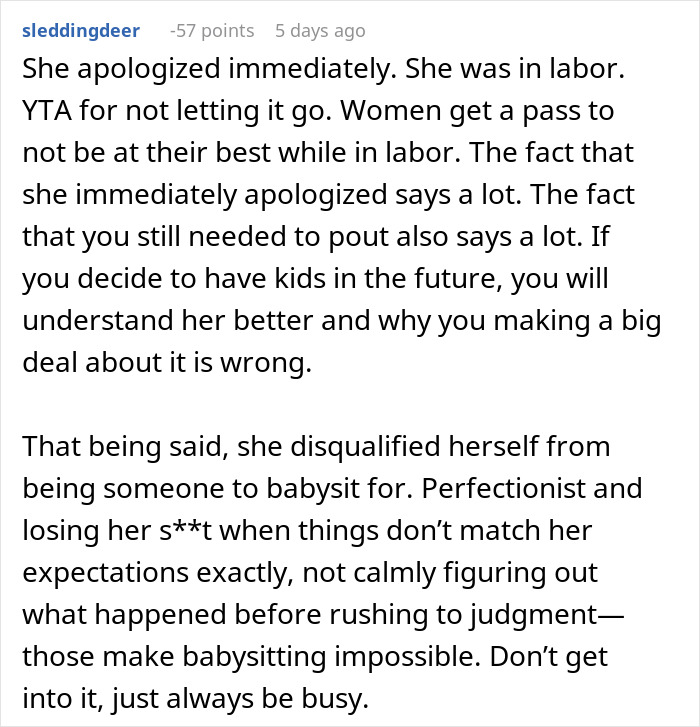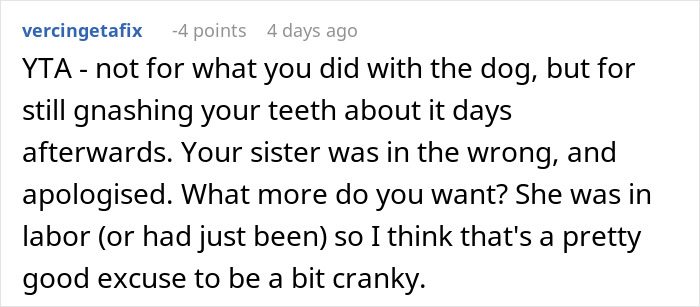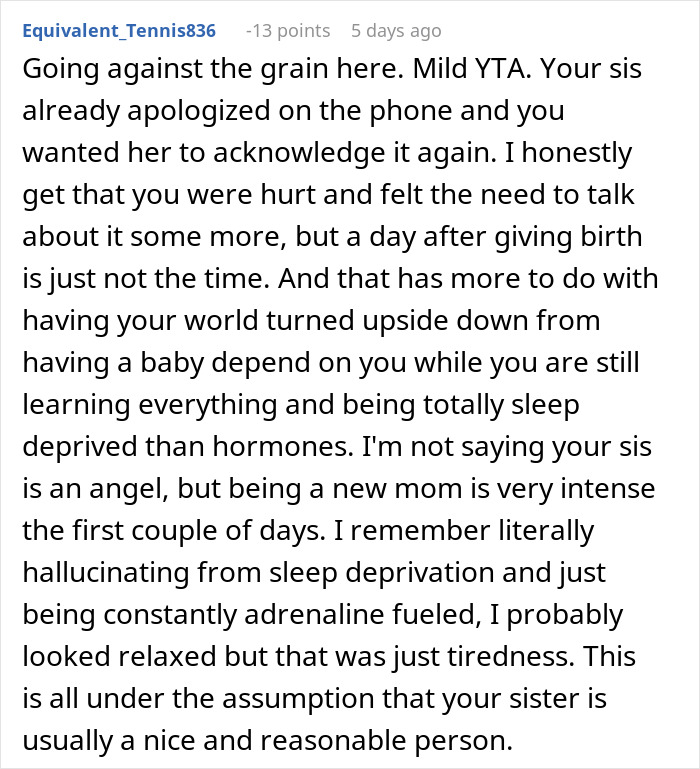Giving birth to a baby is no joke. Hormones can wreak havoc on a woman’s body during labor, so it’s normal that they might not react adequately to some situations. This mom-to-be got mad at her sister and mother for not taking care of her puppy properly.
The author was ready to chalk it up to labor hormones and forgive her sister. But when she brought up her hurt feelings after the birth, she was again met with anger and threats she wouldn’t be allowed to see the baby. So, she asked people online: was she wrong to want her feelings acknowledged?
When this woman went into labor, she asked her sister to look after her puppy

Image credits: DC_Studio / Envato (not the actual photo)
But after the sister failed to care for the dog “properly,” the new mom had some harsh words for her

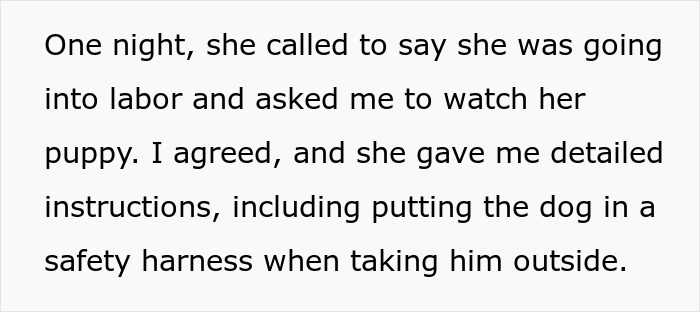
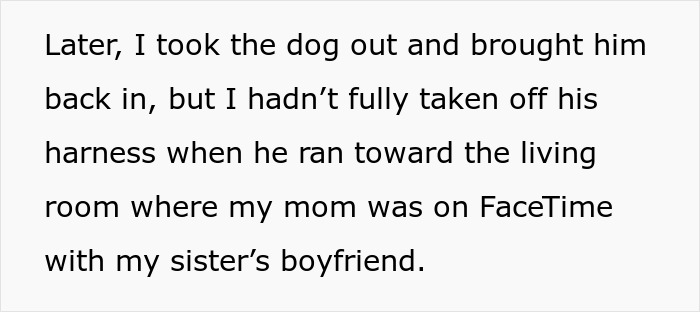
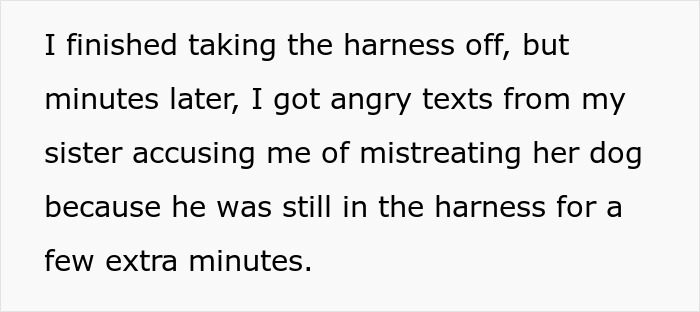
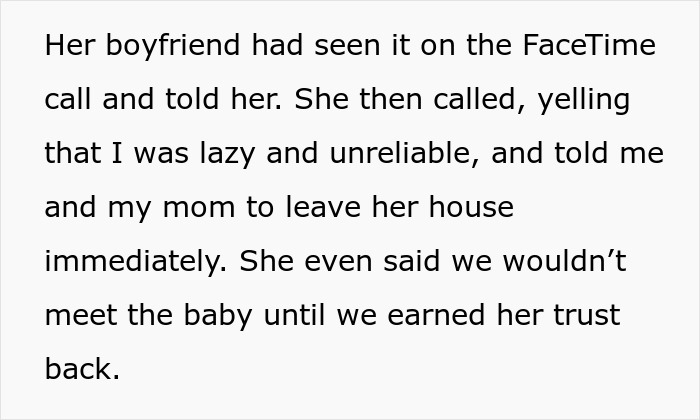

Image credits: katemangostar / Freepik (not the actual photo)
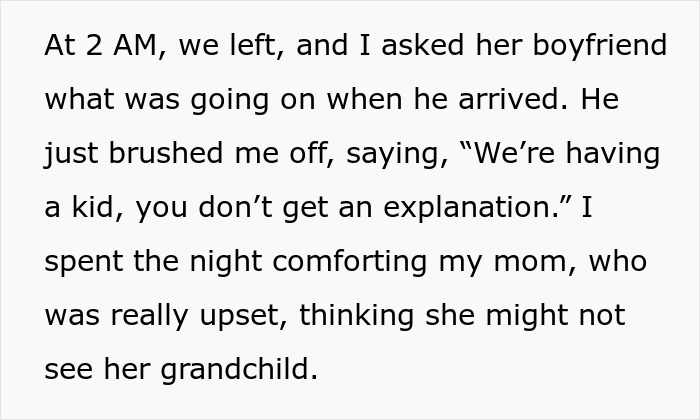
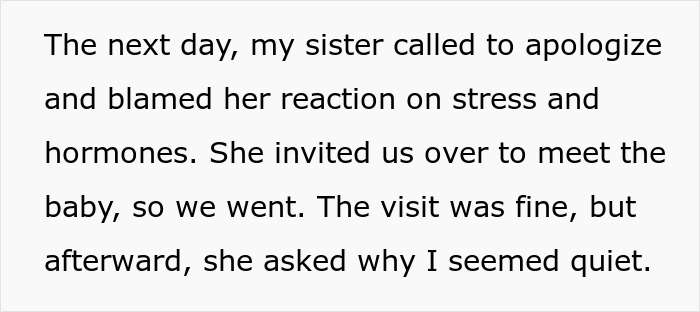
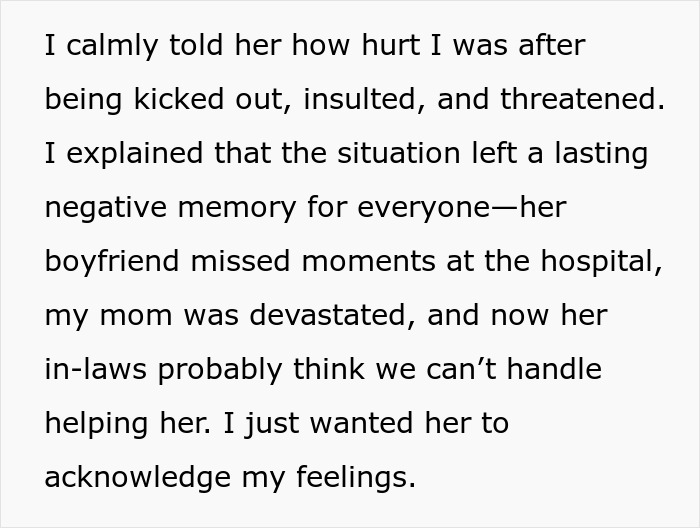
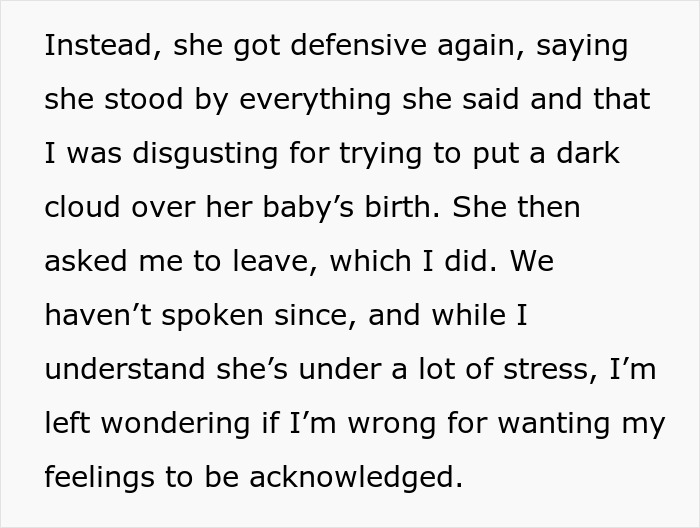
Image credits: Traditional_Honey19
Ideally, dogs should only wear a harness outside
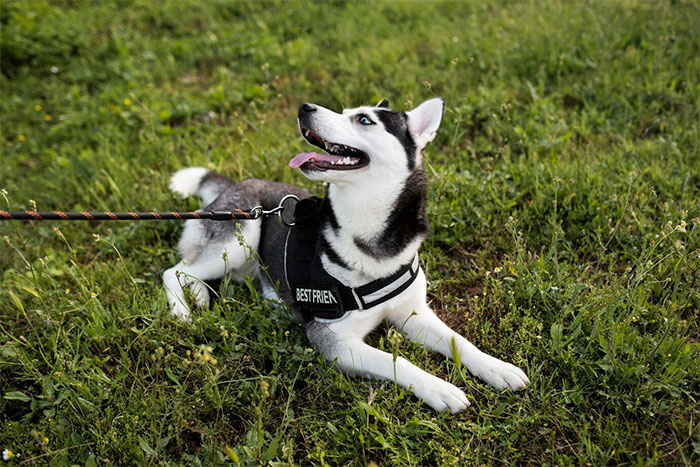
Image credits: Image by Freepik (not the actual photo)
The catalyst for the fight between sisters seems to be that the author didn’t take care of the puppy properly; she didn’t remove the dog’s harness after they got back home from a walk. As she noted in one comment, “There is nothing medically or safety-wise special about this harness, just that due to her being a smaller dog she can get uncomfortable being in it for long periods of time.”
Experts say that harnesses are only suited for outdoor wear. Many dog owners prefer them over collars because there’s less potential for injuries. Any collar that goes around a dog’s throat can damage the trachea, esophagus, and even the thyroid.
According to the outdoor gear for dogs specialist at Arctic Sammy, owners shouldn’t leave dogs with their harnesses on all the time. When a dog wears a harness 24/7, they might develop several skin issues: chafing, rubbing, sores, hair loss, and matted fur. Not to mention that the harness might get caught or stuck on something.
When a dog wears their harness indoors for prolonged periods of time, they may also start associating it with discomfort. If they wear the harness for long, they will inevitably start feeling discomfort and skin irritation, and this might undo the positive progress owners strive for during training.
Pet rescue advocate and pet chef Rocky Kanaka agrees that people shouldn’t leave harnesses on their dogs 24/7. “When you are at home and your dog is not in walk or work mode, it’s best to let them relax and be harness-free. Overuse of a harness can negate the positive association with the training you have done with the harness, and it can impede their physical safety and comfort at home.”
A woman in labor should hear words of encouragement and not worry about things not related to the birth

Image credits: pch.vector / Freepik (not the actual photo)
Giving birth is hard work, no wonder they call it ‘labor.’ What people say to a person in labor matters. Healthcare experts say that women need to be as relaxed as possible, as that can lessen the physical pain and the emotional distress of labor.
There’s a myriad of emotions women feel during birth. The physical sensations include pain, fatigue, nausea, and pressure. So, it’s only natural that women might feel anxious, afraid, calm, anticipation, great joy, and exhaustion.
The things people should be saying to a woman in labor should be words of encouragement. Of course, pain-relieving measures and medication can make the birth more comfortable, but supportive talk can be just as important.
So, it’s quite strange that the woman’s partner chose this time to tell her about how her sister failed to take a harness off their dog. It might make one wonder whether that’s really a priority while a child is being born. Whether she’s in the first or the third stage of labor, the woman should be thinking about seeing her baby, not what her dog is doing.
“The most important thing is being kind and offering support,” Robin Elise Weiss, PhD, MPH, writes. “Let the laboring person know they’re loved and that they can get through their marathon of labor. Stay upbeat and keep negative commentary or snarky remarks to yourself.”
The author clarified why she brought up her issues to the sister so soon after the birth
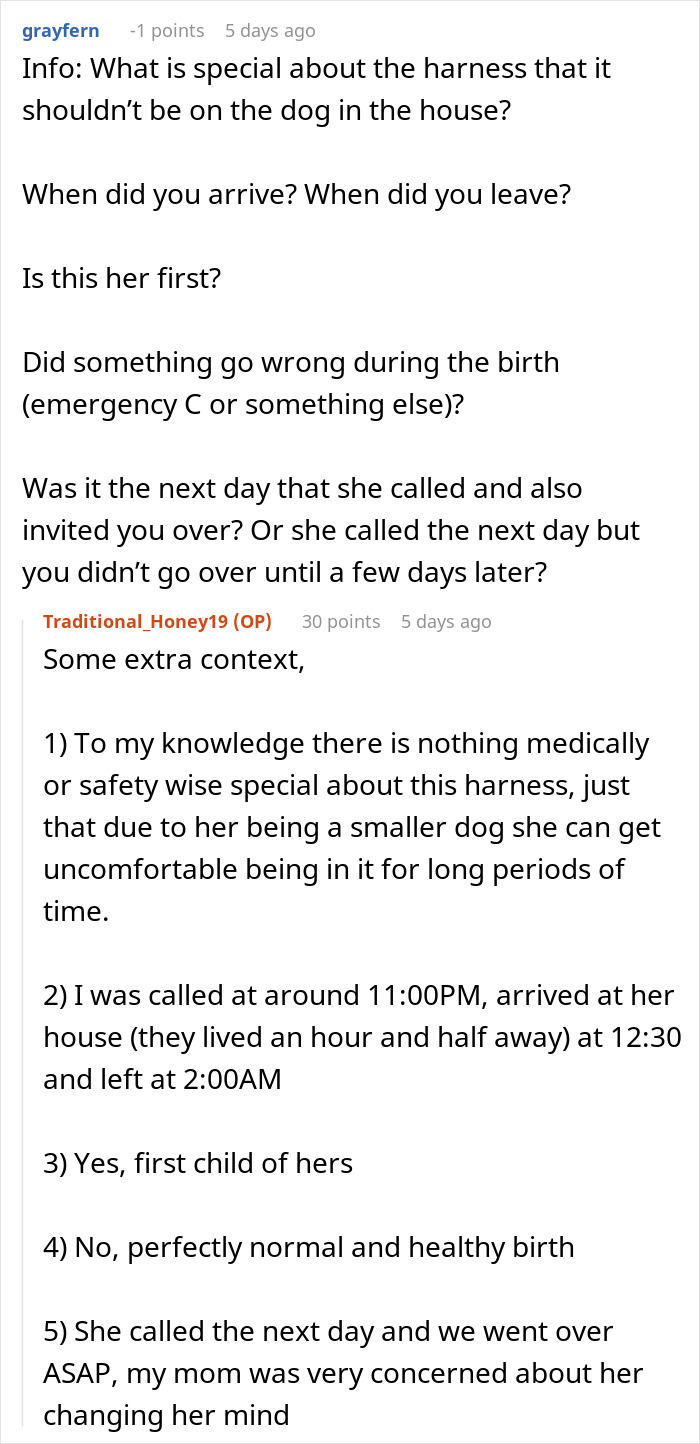

Most people believed the author was not at fault here, as hormones don’t explain such rude behavior
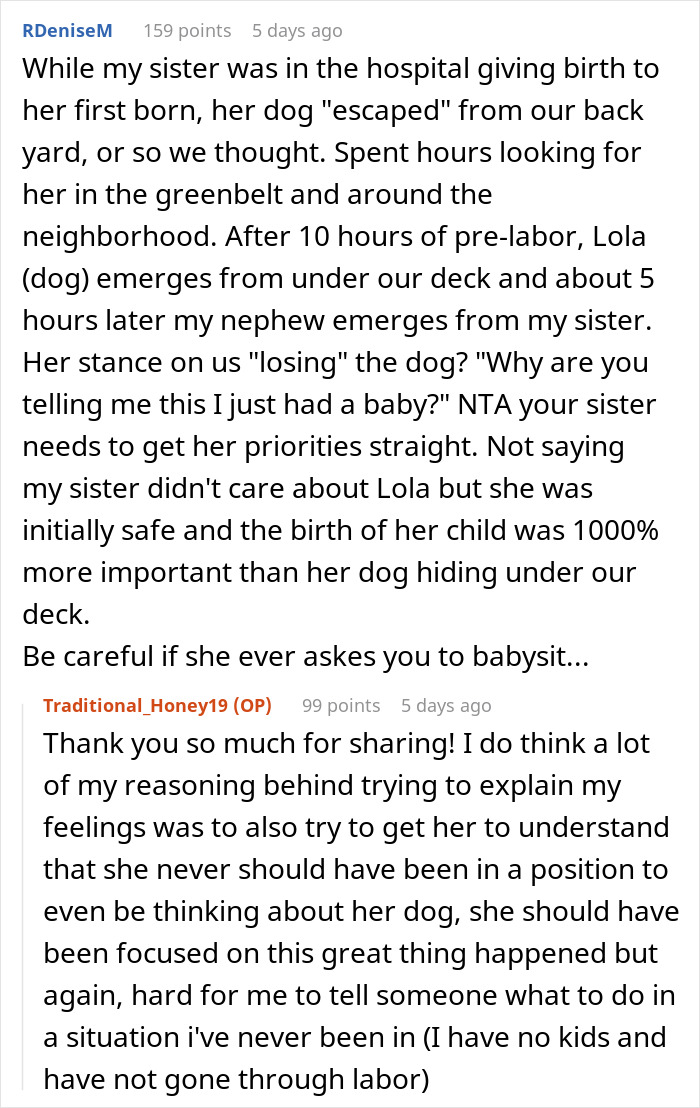
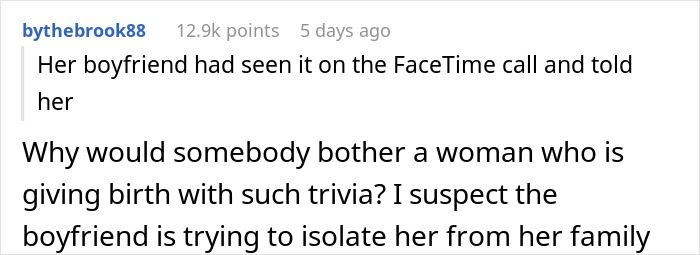

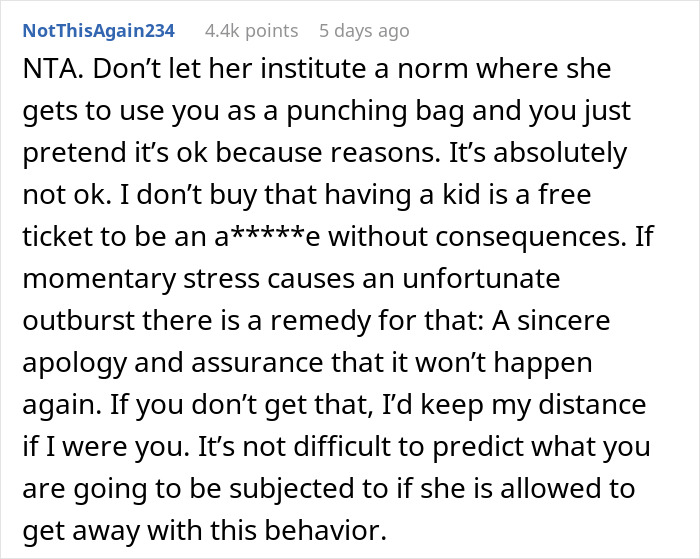
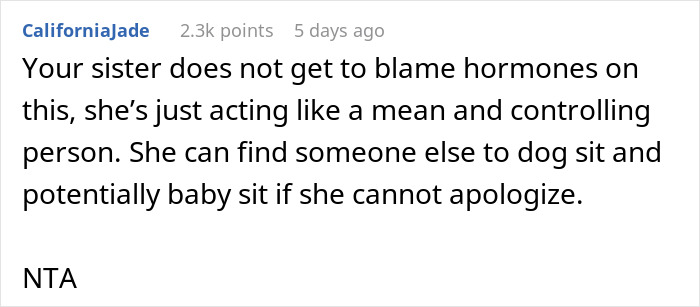

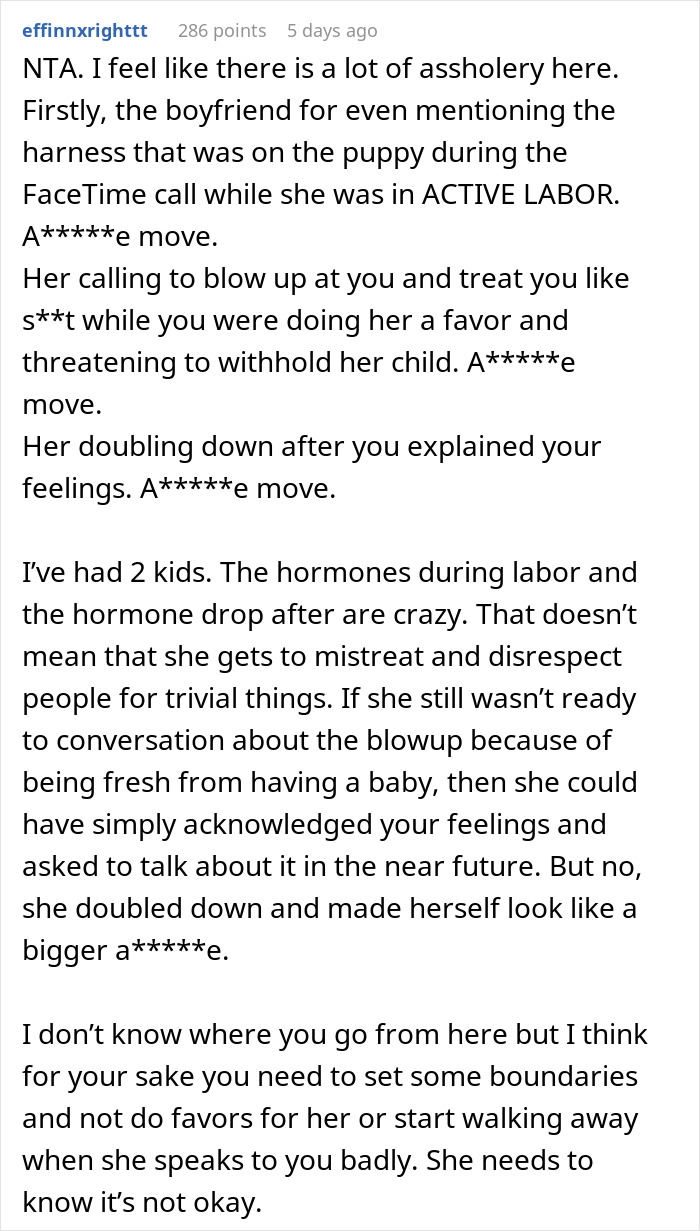
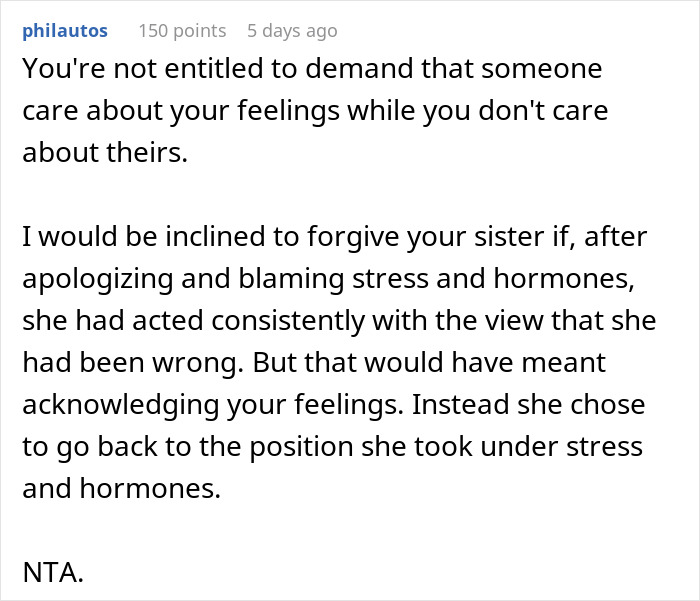

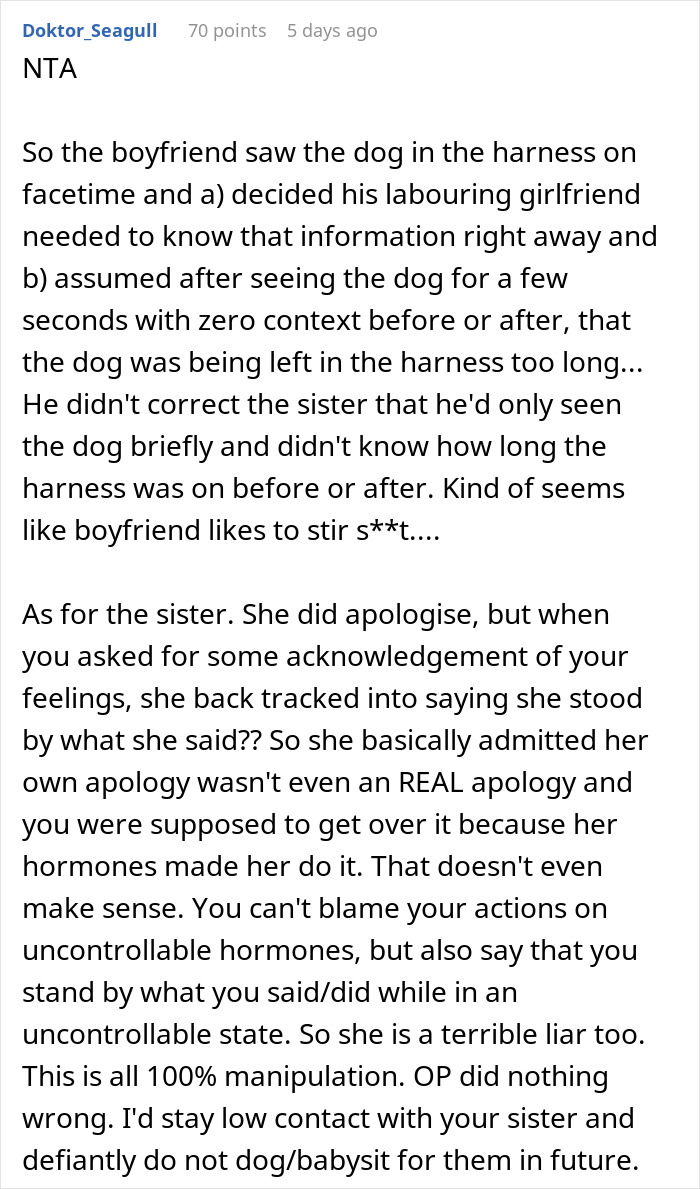

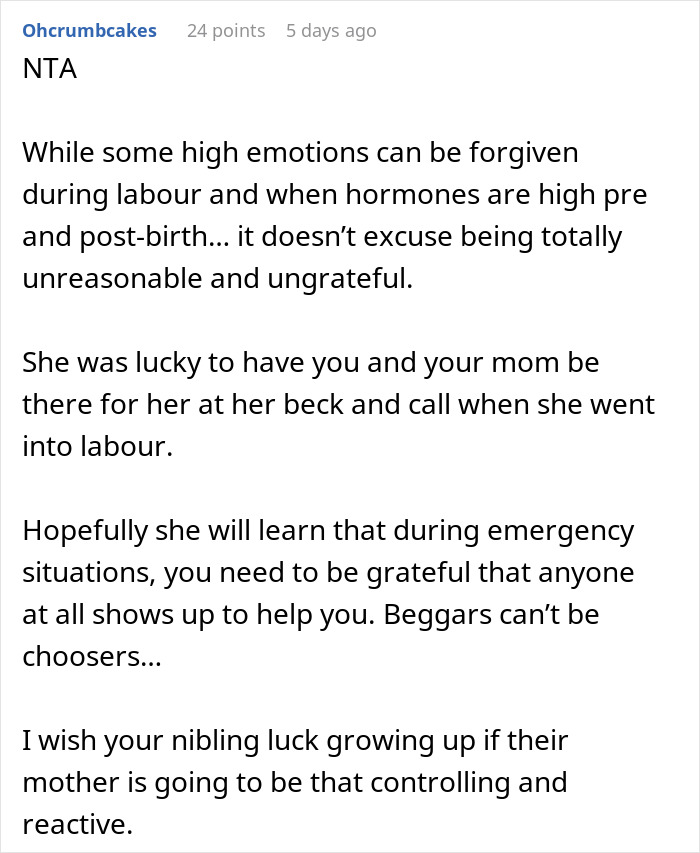

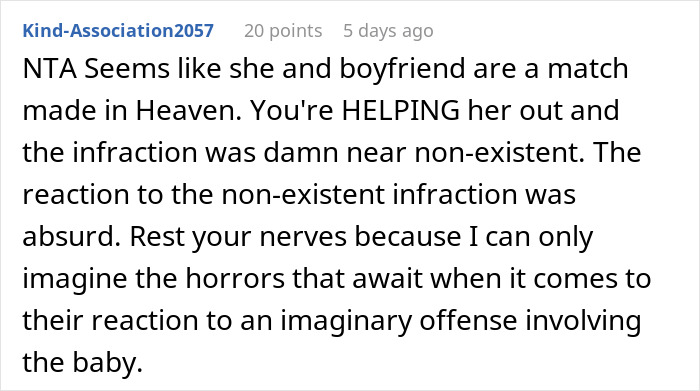
However, some thought that the OP didn’t have to push so soon, as her sister had just given birth
